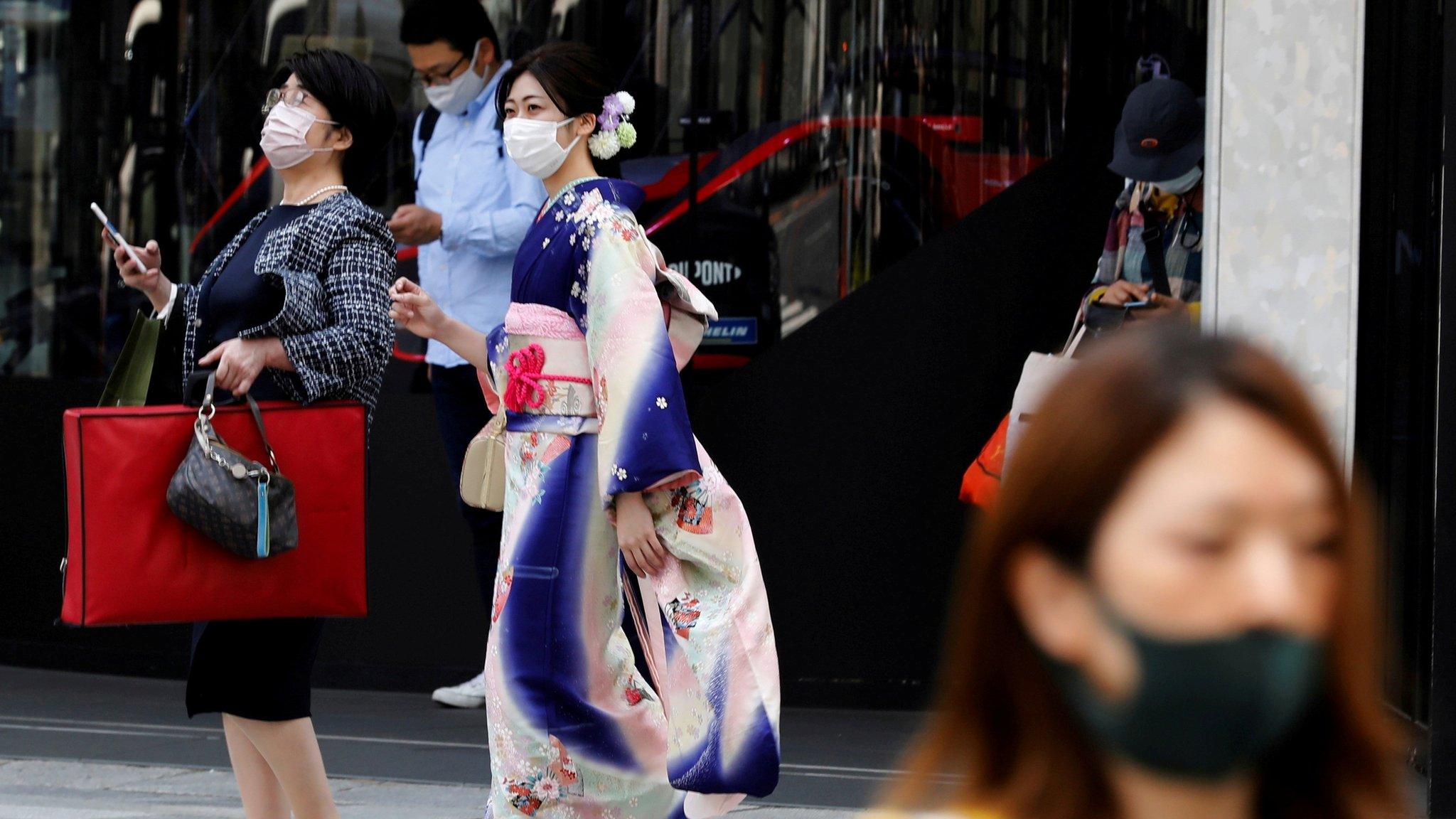Japan ramps up mass vaccinations in Tokyo and Osaka amid Covid surge
- Published
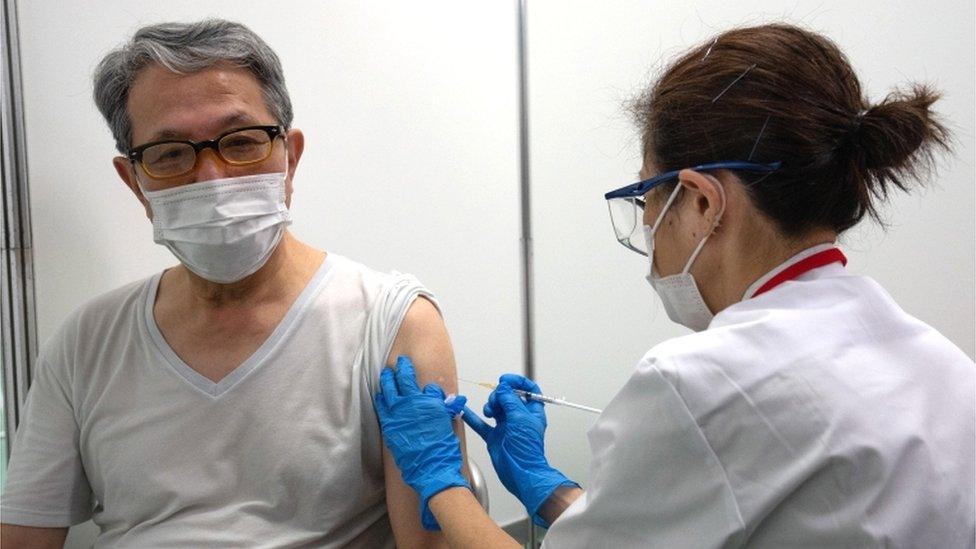
All elderly are to get vaccinated by the end of July
Japan has kicked off a mass vaccination programme in Tokyo and Osaka, as the Covid crisis worsens.
The military has set up centres offering thousands of shots each day, prioritising the elderly.
The country's vaccination drive started late and was hampered by supply shortages and organisational hurdles.
As a result, Japan is lagging significantly behind other developed nations. Only about 1.9% of the population is fully vaccinated.
Japan's efficient healthcare system has been increasingly overwhelmed by the latest surge, with some hospitals running out of beds and ventilators.
Large parts of Japan are currently under a state of emergency to give regional authorities more power to enforce measures against the pandemic.
The country has recorded more than 700,000 infections and 12,000 Covid-19 deaths from the virus.
With the Tokyo Olympics scheduled to start in July, there's mounting pressure to call off the Games.
The mass vaccination drive is run by Japan's defence forces and is scheduled to stretch over the next three months.
Officials are planning to vaccinate up to 5,000 people in Tokyo and 2,500 in Osaka every day with the recently approved Moderna jab, while in June and July this capacity is set to double.
Mass vaccination facilities are also planned for other major cities like Kobe and Nagoya.
Authorities hope that by the end of July, people aged 65 and above will have completed their vaccinations.
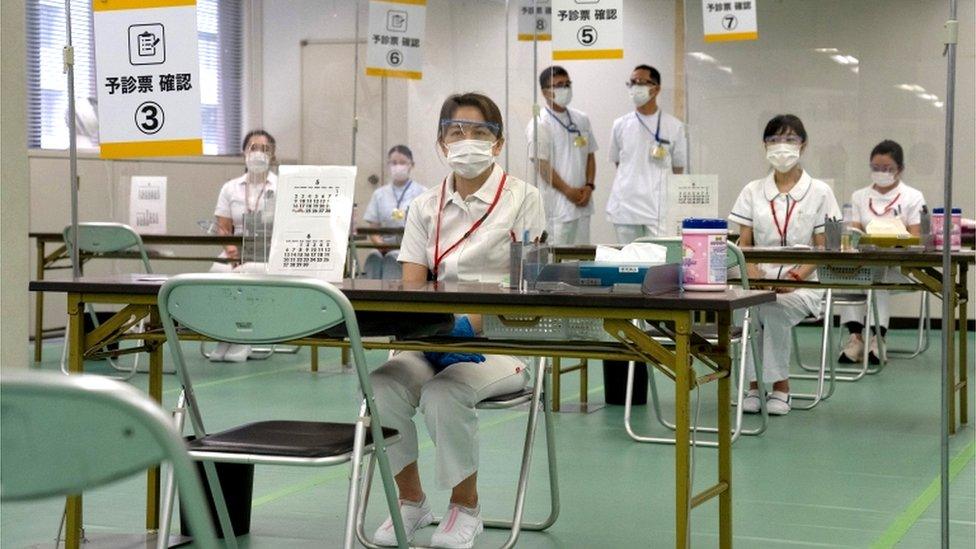
Thousands of people in Tokyo and Osaka will get their jabs every day at the vaccination centres
The country started vaccinating its people only in February, later than most other developed nations.
Earlier vaccination drives, which were conducted by municipal authorities across the country, had prioritised healthcare and other frontline workers.
But progress was slowed by supply shortages and logistical hurdles, such as getting enough local doctors to help out.
So far only around 4.7% of the country's elderly of 65 or older have received at least one dose of either Pfizer, Moderna or AstraZeneca.

Hope after weeks of anxiety
Yuko Kato, Digital editor, BBC News Japan
Hospitals in many areas of the country are overwhelmed, in part due to the sheer number of cases, but also due to a shortage of beds and medical staff.
Many of the hospitals here are private enterprises, and they won't be able to sustain themselves financially if they were to constantly secure wards and beds for severe cases. And the larger hospitals which are better equipped also need to deal with other severe and emergency cases, which further impacts their ability to cope.
Meanwhile there's been considerable anxiety about the extremely slow rollout of vaccines, as well as confusion over how to secure slots for the elderly.
The difficulty (or in some places, ease) of making the reservations vary greatly depending on where you live, and the initial errors found in the online booking system for the new mass vaccination centres, run by the central government, did not alleviate that confusion.
However, now that the mass vaccination centres are up and running, there's hope that the very visceral fear for our loved ones' well-being will start to abate sooner than later.

What's the situation in Osaka and Tokyo?
While Japan had long managed to avoid large scale outbreaks seen in other countries, recent weeks have seen a steady increase in cases.
Tokyo is still Japan's biggest Covid hotspot, and the capital currently has a weekly average of 650 cases per day.
But the situation has also been getting worse rapidly in the country's second city Osaka, with reports of hospitals running out of beds and ventilators.
In late April the city saw a spike of more than 1,000 new cases a day. It now averages around half that number each day.
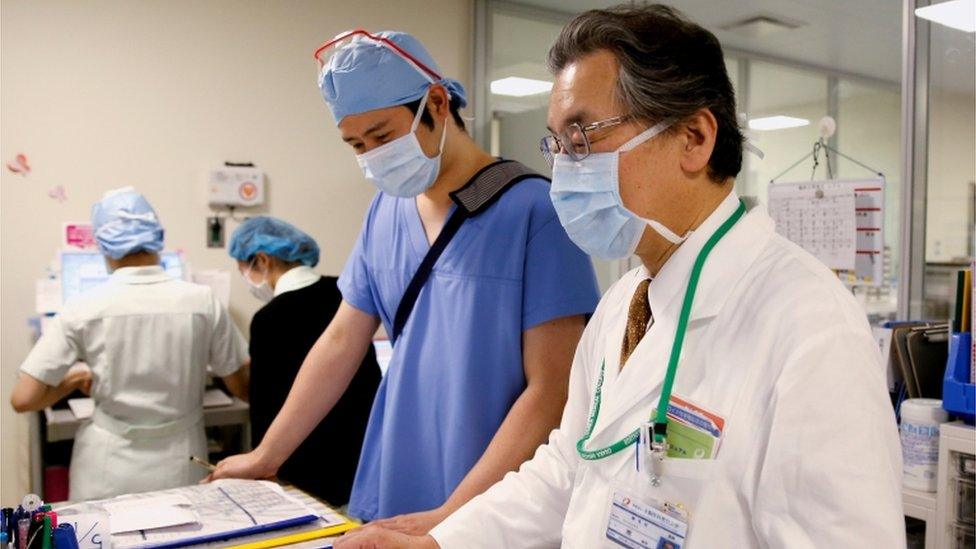
Osaka's hospitals are reaching 'breaking point', doctors warn
Exhausted doctors have told Reuters they saw a "explosive growth in the number of patients".
"Simply put, this is a collapse of the medical system," Yuji Tohda, director of Kindai University Hospital in Osaka, told the news agency.
What about the Tokyo Olympics?
Despite the growing crisis, the Tokyo Olympics are still scheduled to go ahead after having been postponed from last year.
John Coates, vice president of the International Olympic Committee (IOC) last Friday said the Games would "absolutely" go ahead, even under Covid restrictions.
But polls indicate that a vast majority of Japanese prefer the Olympics to be cancelled or postponed a second time.
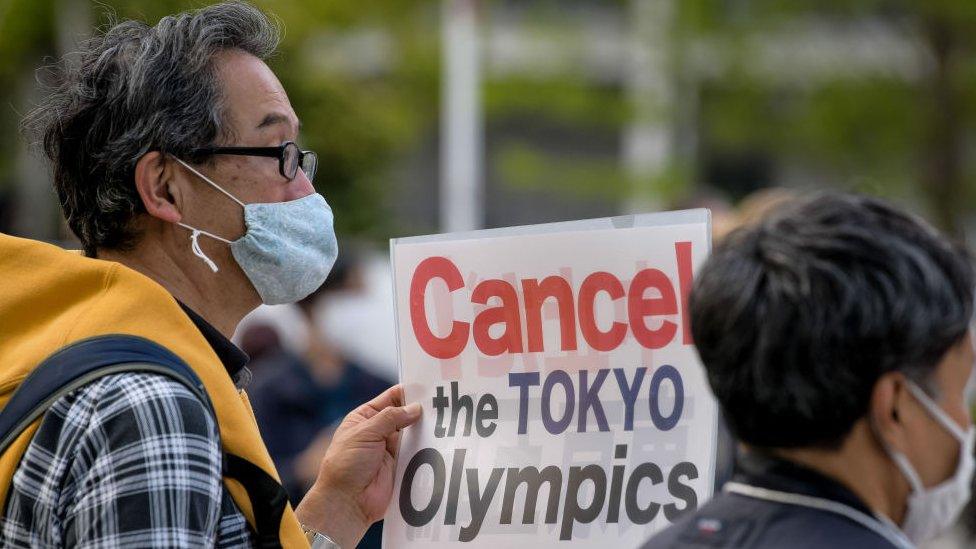
There have been mounting calls in Japan to cancel the Games
Over the weekend, one of Japan's most prominent business tycoons criticised the decision to continue with the Games.
In a tweet that went viral, SoftBank CEO Masayoshi Son said that "more than 80% of people want the Olympics to be postponed or cancelled. Who and on what authority is it being forced through?"
Medical workers have also repeatedly issued warnings.
A nurse from the central city of Nagoya, who declined to be named, told the BBC's Rupert Wingfield-Hayes that she has watched the Covid unit in her hospital fill to capacity in recent weeks.
"We already don't have enough hospital beds and staff for Covid patients. People are already dying at home because they can't get into the hospital.
"They want 500 nurses to volunteer at the Olympics. That means more Covid patients won't get the care they need."
Akira Takasu, head of emergency medicine at the Osaka Medical and Pharmaceutical University Hospital, told Reuters: "The Olympics should be stopped, because we already have failed to stop the flow of new variants from England, and next might be an inflow of Indian variants.
"This may be a trigger for another disaster in the summer."
'If people are not feeling safe, then it's a really big cause for concern'
- Published15 May 2021
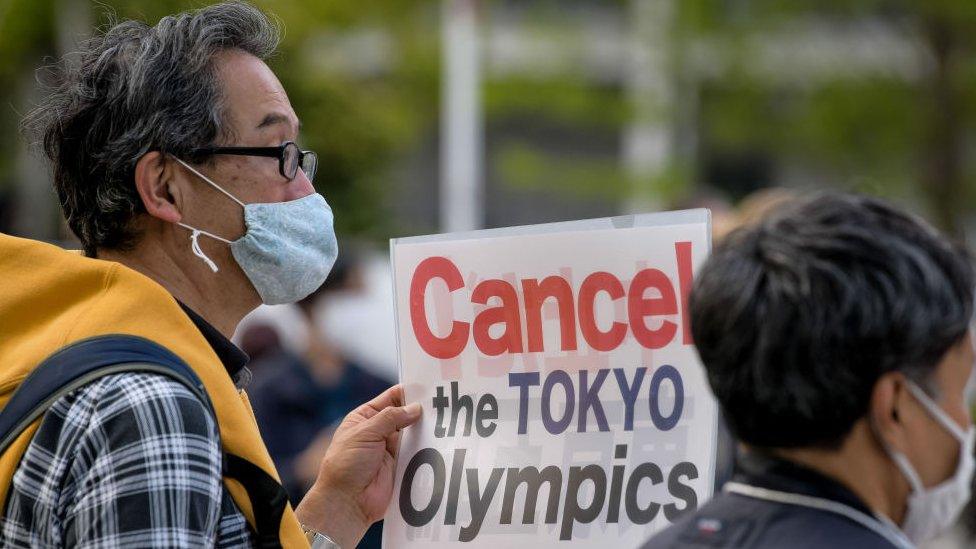
- Attribution
- Published21 May 2021
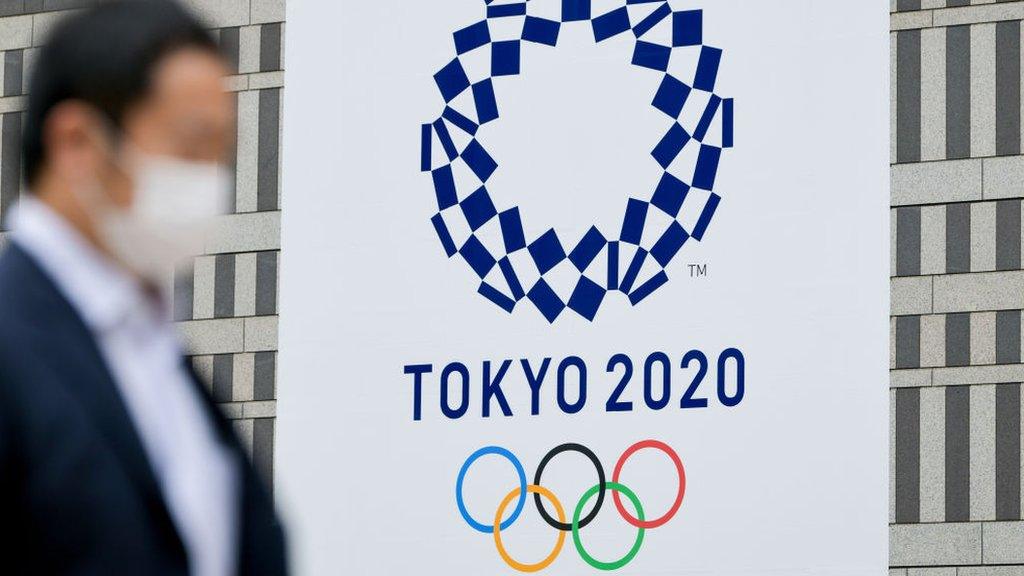
- Published7 May 2021
